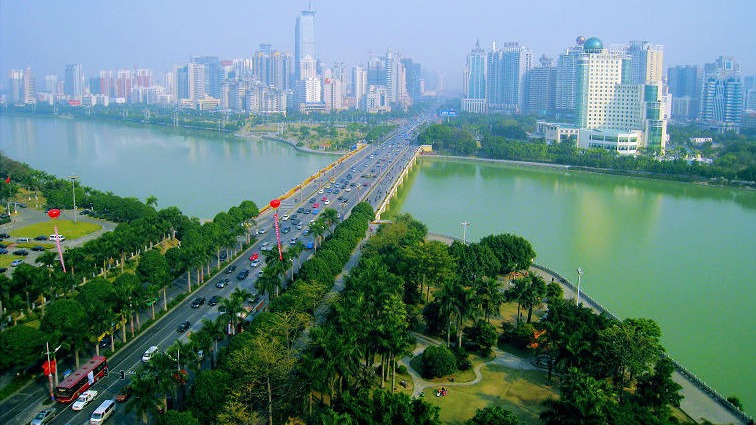Nanning, capital of Guangxi Zhuang Autonomous Region, is the largest city in Guangxi and the core city of Beibu Gulf Economic Zone. Located in the central south of Guangxi, it is the hometown of red beans and a time-honored border city with rich cultural heritages, known as Yong Zhou in ancient China. Nanning lies in the junction of South, Southwest China and Southeast Asia’s economic circle, making it an important economic center around Beibu Gulf Economic Zone. It is a modern city featuring 36 ethnic groups living together, such as Zhuang, which constitutes the majority of population, Han Chinese, Miao and Yao ethnic groups. As the capital of Guangxi, it is the political, economic and cultural center. There are many industries, such as sugar refinery, food and textile, machinery, electronics, building materials, chemical industry, metallurgy, coal, etc. It is one of the production bases for tropical fruits, food and cash crops. Nanning is also an important access to the sea from southwest China. It is known as the "Green City" because of its abundance of lush tropical foliage.
Nanning lies in the junction of South, Southwest China and Southeast Asia’s economic circle, making it an important economic center around Beibu Gulf Economic Zone. It borders Southeast Asia to the south, Southwest China to the north, Guangdong and Hong Kong to the east and Indian Peninsula to the west. With such unique geographical advantages, it is an emerging hub city for access to the sea from Southwest China. Nanning is the permanent city to host China - ASEAN Expo and China - ASEAN Business and Investment Summit. As the core city around Beibu Gulf Economic Zone, it bolsters the development of coastal cities around the Gulf, connects the South China Economic Zone with Southwest China Economic Circle and features the frontier city opening up to Southeast Asia.
Approved by the State Council, the "Development Plan of Guangxi Beibu Gulf Economic Zone" makes it clear the objective to build Nanning into a "regional financial center." In 2009, the growth in new loans of Guangxi ranked second in the country, or the first in western China, financial capital reaching over RMB one trillion. By the end of 2009, Nanning has 19 banking institutions, including two policy banks, four state-owned commercial banks, eight joint-stock commercial banks, one regional commercial bank, three foreign banks and one rural credit union. It also has 26 various insurance companies; one securities corporate entity; one fund management entity; over 40 registered guarantee agencies. In total, the city has 959 bank branches, 19 securities branch offices and 20 futures branch offices.
Nanning is a dynamic and culturally rich city in which people of all ethnic groups live in harmony and joy with colorful folk customs. The annual Nanning International Folk Song Art Festival attracts artists, troupe and celebrities around the world to participate in the event. The Zhuang ethnic people welcome new friends by singing and dancing, further improving the city influence of Nanning. With abundant tourism resources, Nanning borders Guilin to the north and Qinzhou and Beihai to the south, which constitutes a golden tourist belt of Guangxi. Magnificent border city landscape, romantic beach features, charming exotic customs, sporadic mountains and rivers, ancient historical sites, all of these consist of Nanning’s multi-layered tourist attractions.
